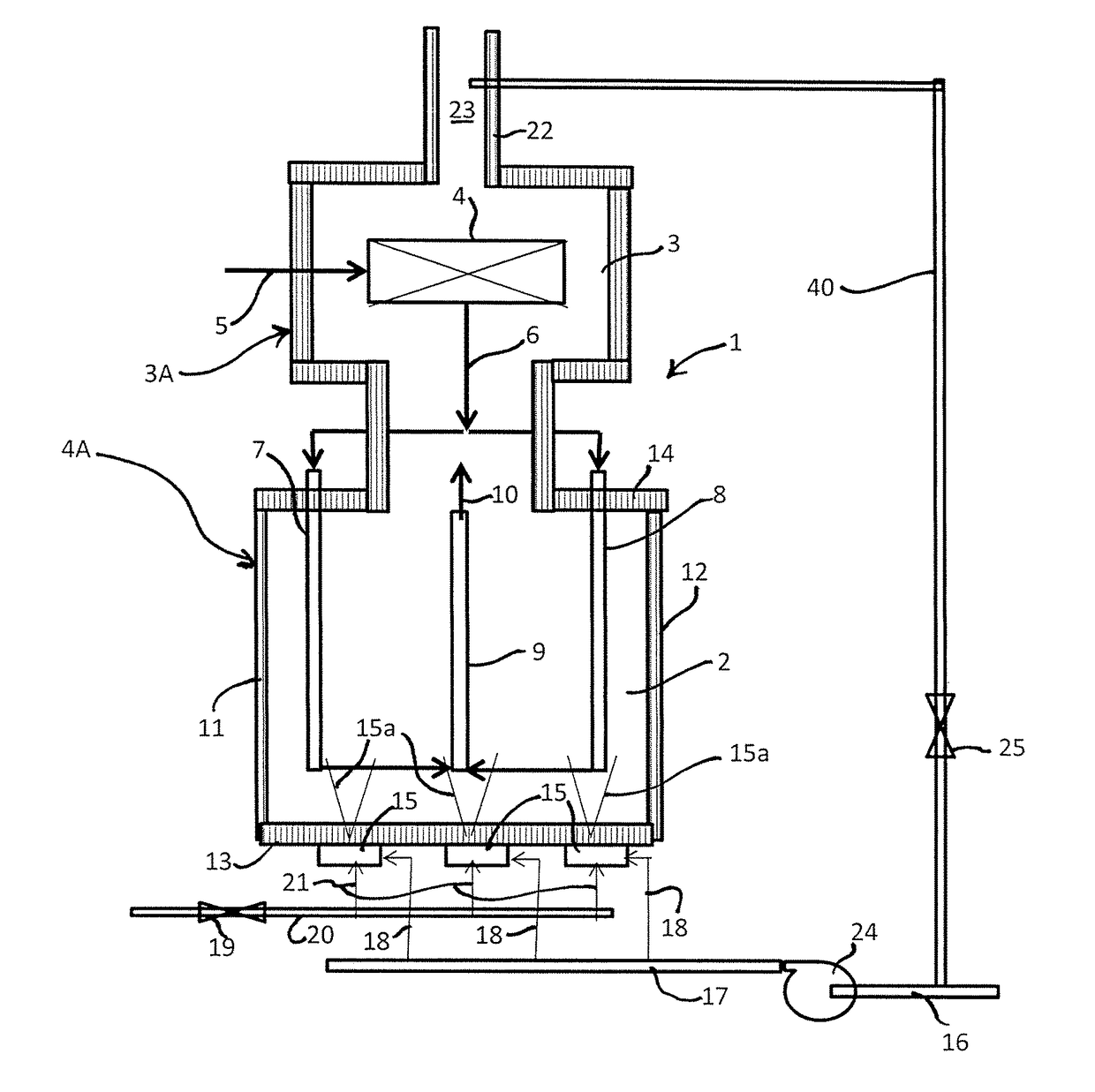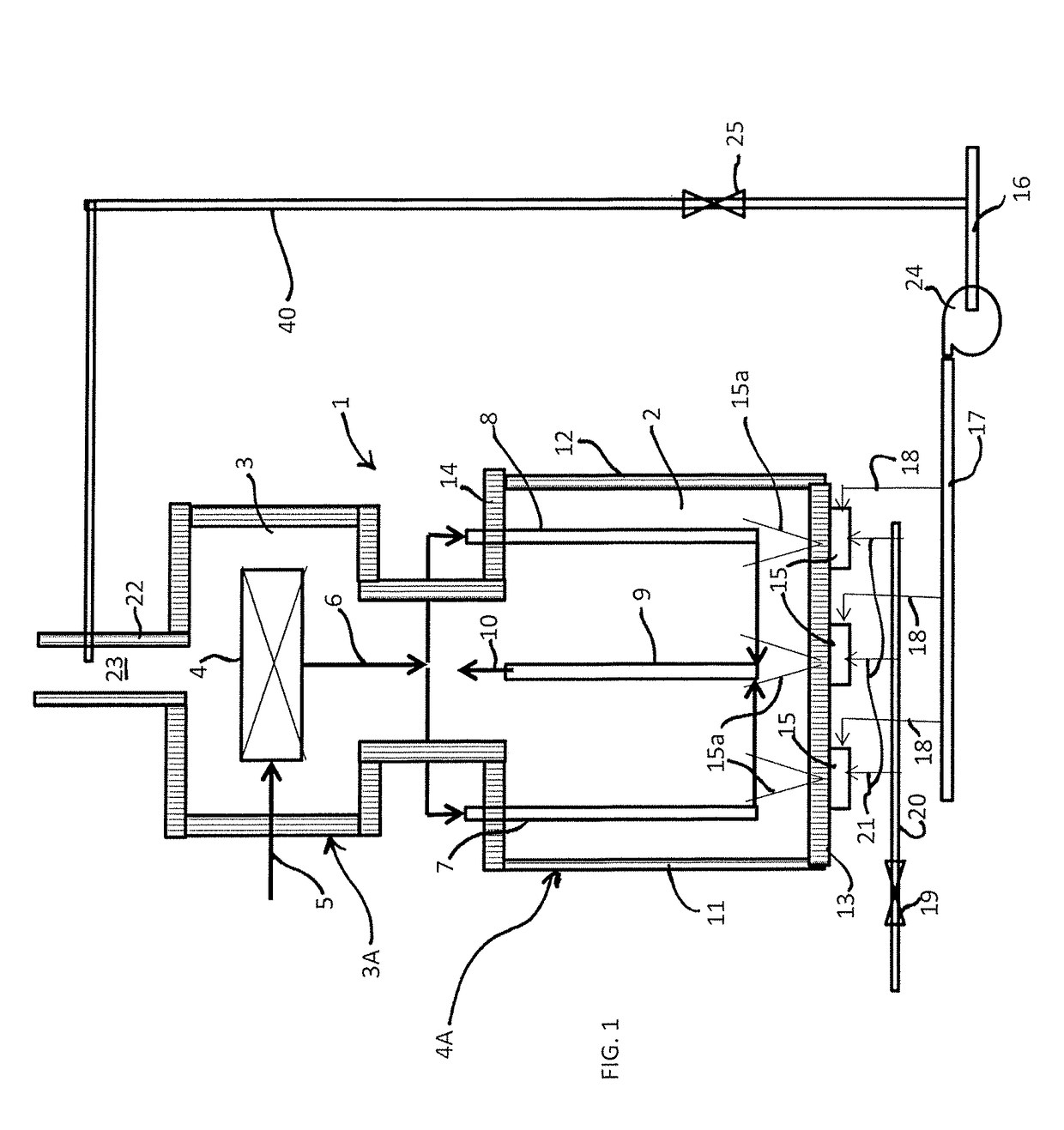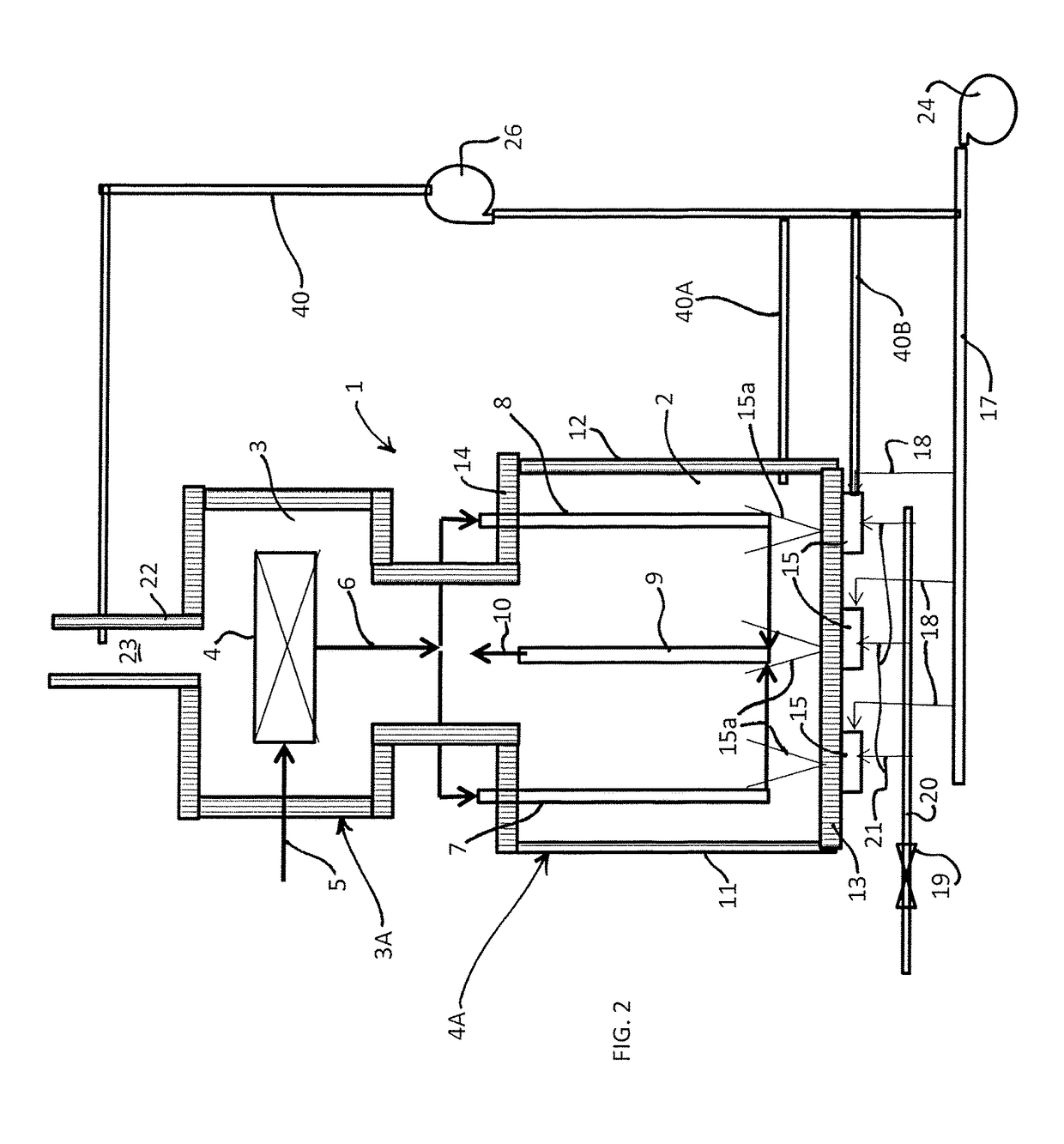Furnaces and methods of reducing heat degrading of metal heating coils of furnaces
a technology of furnaces and heating coils, applied in the field of furnaces, can solve the problems of difficult heat transfer into the reaction tube, affecting the efficiency of furnaces, so as to reduce the combustibility of combustion media, reduce the peak heat generated, and reduce the effect of heat degradation
- Summary
- Abstract
- Description
- Claims
- Application Information
AI Technical Summary
Benefits of technology
Problems solved by technology
Method used
Image
Examples
Embodiment Construction
[0014]Furnaces and methods of reducing heat degrading of metal heating coils of furnaces are disclosed.
[0015]In general, an exemplary method includes providing a furnace, the furnace includes a radiant heating zone having metal heating coils and burners, concurrently applying a combustion media, having a combustibility, and a diluent to the burners, the burners burning the combustion media producing flames heating the radiant heating zone, and the diluent reducing the combustibility of the combustion media for reducing heat generated by the flames for reducing heat degradation, such as fouling and cracking, of the metal heating coils. The combustion media includes fuel. In another embodiment, the combustion media includes fuel and air. The diluent is selected from a group consisting of flue gas, steam, hydrogen, carbon dioxide, and nitrogen. Flue gas and steam diluents each produce reduced soot formation by the flames, in accordance with the principle of the invention. Radiation flu...
PUM
| Property | Measurement | Unit |
|---|---|---|
| operating temperature | aaaaa | aaaaa |
| temperature | aaaaa | aaaaa |
| outlet temperature | aaaaa | aaaaa |
Abstract
Description
Claims
Application Information
 Login to View More
Login to View More - R&D
- Intellectual Property
- Life Sciences
- Materials
- Tech Scout
- Unparalleled Data Quality
- Higher Quality Content
- 60% Fewer Hallucinations
Browse by: Latest US Patents, China's latest patents, Technical Efficacy Thesaurus, Application Domain, Technology Topic, Popular Technical Reports.
© 2025 PatSnap. All rights reserved.Legal|Privacy policy|Modern Slavery Act Transparency Statement|Sitemap|About US| Contact US: help@patsnap.com



